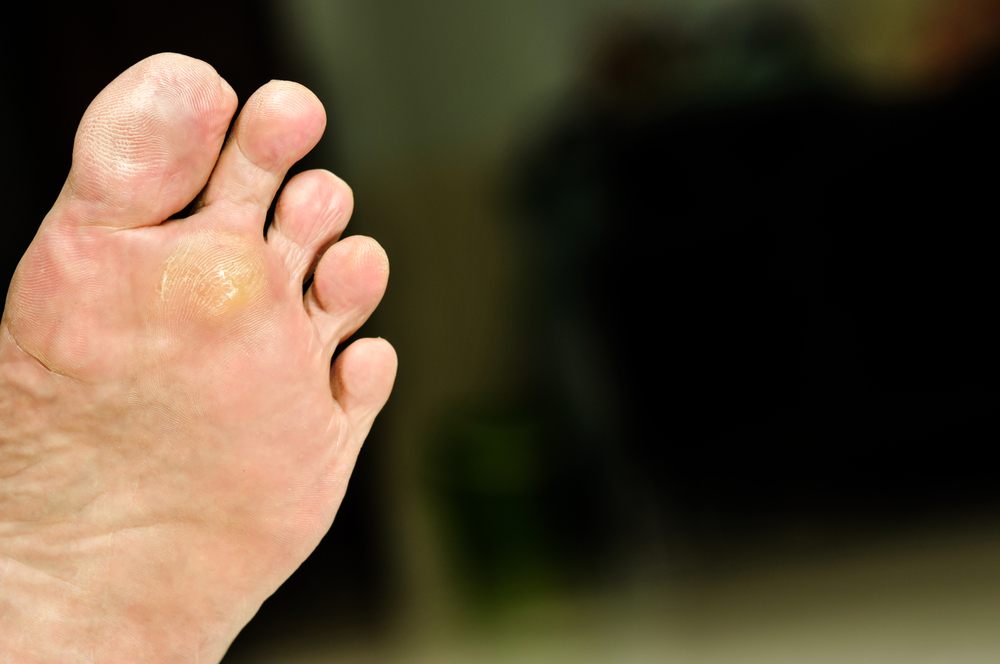NJ (908) 688-5577
NY (212) 737-2528
 If you have a sore that produces pain on the bottom of your foot, you may have what is referred to as a plantar wart. A plantar wart generally causes severe discomfort and is caused by a virus that thrives in moist and warm environments. This type of wart will typically develop on the heel or ball of the foot, which can result in painful walking. It grows into the heel as a result of the pressure endured while walking, which is contrary to other types of warts that grow out. These types of warts originate from a virus that is known to be contagious and is generally found on wet surfaces. Common areas the virus may live on may include public showers, pools and surrounding surfaces. If you have this condition, it’s suggested to learn about preventive measures, including wearing appropriate shoes in showering areas, pools, and saunas. Please consult with a podiatrist for additional information about plantar warts and the correct treatment options for you.
If you have a sore that produces pain on the bottom of your foot, you may have what is referred to as a plantar wart. A plantar wart generally causes severe discomfort and is caused by a virus that thrives in moist and warm environments. This type of wart will typically develop on the heel or ball of the foot, which can result in painful walking. It grows into the heel as a result of the pressure endured while walking, which is contrary to other types of warts that grow out. These types of warts originate from a virus that is known to be contagious and is generally found on wet surfaces. Common areas the virus may live on may include public showers, pools and surrounding surfaces. If you have this condition, it’s suggested to learn about preventive measures, including wearing appropriate shoes in showering areas, pools, and saunas. Please consult with a podiatrist for additional information about plantar warts and the correct treatment options for you.
Plantar warts can be very uncomfortable. If you need your feet checked, contact Glenn Davison, DPM from Advanced Podiatry. Our doctor will assist you with all of your foot and ankle needs.
About Plantar Warts
Plantar warts are the result of HPV, or human papillomavirus, getting into open wounds on the feet. They are mostly found on the heels or balls of the feet.
While plantar warts are generally harmless, those experiencing excessive pain or those suffering from diabetes or a compromised immune system require immediate medical care. Plantar warts are easily diagnosed, usually through scraping off a bit of rough skin or by getting a biopsy.
Symptoms
Treatment
To help prevent developing plantar warts, avoid walking barefoot over abrasive surfaces that can cause cuts or wounds for HPV to get into. Avoiding direct contact with other warts, as well as not picking or rubbing existing warts, can help prevent the further spread of plantar warts. However, if you think you have developed plantar warts, speak to your podiatrist. He or she can diagnose the warts on your feet and recommend the appropriate treatment options.
If you have any questions please feel free to contact our offices located in Union, NJ and New York . We offer the newest diagnostic and treatment technologies for all your foot and ankle needs.